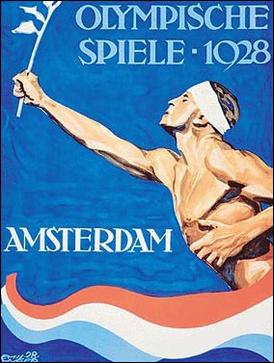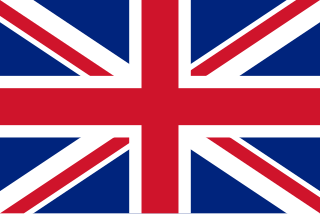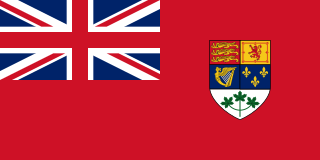
The Summer Olympic Games, also known as the Summer Olympics or the Games of the Olympiad, is a major international multi-sport event normally held once every four years. The inaugural Games took place in 1896 in Athens, Greece, and the most recent was held in 2024 in Paris, France. This was the first international multi-sport event of its kind, organized by the International Olympic Committee (IOC) founded by Pierre de Coubertin. The tradition of awarding medals began in 1904; in each Olympic event, gold medals are awarded for first place, silver medals for second place, and bronze medals for third place. The Winter Olympic Games were created out of the success of the Summer Olympic Games, which are regarded as the largest and most prestigious multi-sport international event in the world.

The 1928 Summer Olympics, officially the Games of the IX Olympiad, was an international multi-sport event that was celebrated from 28 July to 12 August 1928 in Amsterdam, Netherlands. The city of Amsterdam had previously bid for the 1920 and 1924 Olympic Games. Still, it was obliged to give way to war-torn Antwerp in Belgium for the 1920 Games and Pierre de Coubertin's Paris for the 1924 Games.

The 1924 Summer Olympics, officially the Games of the VIII Olympiad and officially branded as Paris 1924, were an international multi-sport event held in Paris, France. The opening ceremony was held on 5 July, but some competitions had already started on 4 May. The Games were the second to be hosted by Paris, making it the first city to host the Olympics twice.

The 1900 Summer Olympics, today officially known as the Games of the II Olympiad and also known as Paris 1900, were an international multi-sport event that took place in Paris, France, from 14 May to 28 October 1900. No opening or closing ceremonies were held.

The 1912 Summer Olympics, officially known as the Games of the V Olympiad and commonly known as Stockholm 1912, were an international multi-sport event held in Stockholm, Sweden, between 6 July and 22 July 1912. The opening ceremony was held on 6 July.

At the 1900 Summer Olympics in Paris, four events in rowing were contested, marking the introduction of the sport to the Olympic program. At the inaugural 1896 Games, the rowing competition was cancelled due to strong winds. The 1900 regatta was held on the Seine between the Courbevoie Bridge and the Asnières Bridge on 25 and 26 August. The length of the regatta course was 1,750 metres. Two finals were held in the coxed four competition, with both finals being considered Olympic championships. Thus, there were a total of five rowing championships awarded.

Rugby union has been a men's medal sport at the modern Summer Olympic Games, being played at four of the first seven competitions. The sport debuted at the 1900 Paris games where the gold medal was won by the host nation. It was subsequently featured at the London games in 1908, the Antwerp games in 1920 and the Paris games in 1924.

The 1924 Summer Olympics, officially known as the Games of the VIII Olympiad, was an international multi-sport event held in Paris, France, from 4 May to 27 July. A total of 3,089 athletes from 44 nations participated in 126 events in 17 sports across 23 different disciplines.
The 1900 Summer Olympics were held in Paris, France, from May 14 to October 28, 1900, as part of the 1900 World's Fair.

The United Kingdom of Great Britain and Ireland competed as Great Britain at the 1900 Summer Olympics in Paris, France. It was the second appearance of Britain after having participated in the inaugural 1896 Games. In Olympic competition, the nation has always shortened its official name to Great Britain rather than the United Kingdom seen elsewhere.

The modern Olympic Games were founded by French historian Pierre de Coubertin. France has competed in every edition, with the possible exception of the 1904 Games.

Canada competed at the 1924 Summer Olympics in Paris, France. 65 competitors, all men, took part in 39 events in 8 sports.

The men's individual trap shooting competition was one of 15 shooting sports events on the Shooting at the 1908 Summer Olympics programme. It was held from 8 to 11 July. Each nation could enter up to 12 shooters. There were 61 competitors from 8 nations. Canada took the top two spots, with Walter Ewing earning gold and George Beattie silver. There were two bronze medals awarded after Alexander Maunder of Great Britain and Anastasios Metaxas of Greece tied for third place. The medals were the first in the event for all three nations. Ewing also received Lord Westbury's Cup as a challenge prize.

Rowing at the 1976 Summer Olympics in Montreal featured races in 14 events, all held at the rowing basin on Notre Dame Island. Women's events held at 1000 m debuted.

Rowing at the 1912 Summer Olympics featured four events, for men only. All races were held in Djurgårdsbrunnsviken from Thursday to Saturday, 17 to 19 July.
At the 1924 Summer Olympics in Paris, ten events in shooting were contested. These would be the last Games in which team events were part of the Olympic shooting program. The competitions were held from 23 June 1924 to 9 July 1924 at the shooting ranges at Versailles, Reims, Camp de Châlons (Mourmelon), and Issy-les-Moulineaux.
Colin Herbert Bain Finlayson was a Canadian rower who competed in the 1924 Summer Olympics. In 1924 he won the silver medal as crew member of the Canadian boat in the coxless fours event. He died in Kemano, British Columbia.













